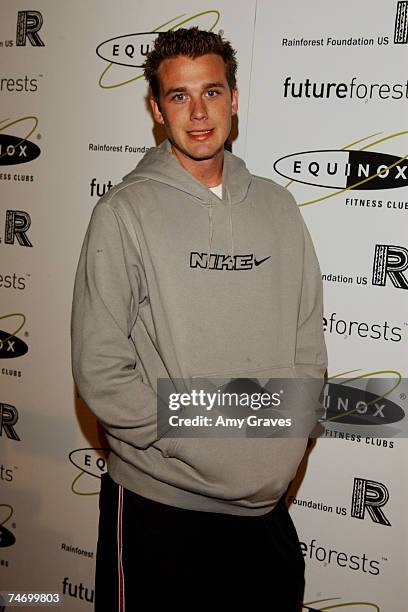Could Eric Lively's career withstand the scrutiny following the Shelter Cove incident? A bold statement emerges as we delve into the complexities of this case: the public's perception can shape an individual's legacy, regardless of legal outcomes. On May 3, 2017, a tragic event unfolded in Shelter Cove, where Eric Lively was charged with the second-degree murder of his neighbor, Jesse Simpson, aged 42. This incident sent shockwaves through both local communities and entertainment circles, forcing a reevaluation of Eric Lively’s persona beyond his artistic endeavors.
The jury's verdict of guilty on charges of second-degree murder brought forth a multitude of questions about Eric Lively's character. Known for his work in film and television, Eric had carved out a niche as an actor capable of playing versatile roles. However, the events leading up to that fateful day in Shelter Cove painted a different picture. The trial proceedings revealed details that were starkly contrasting to the image he portrayed on screen. As evidence mounted against him, it became clear that this case would not only test the justice system but also challenge societal views on celebrity accountability.
| Full Name | Eric Lively |
|---|---|
| Date of Birth | March 15, 1988 |
| Place of Birth | Los Angeles, California |
| Family | Siblings: Blake Lively, Lori Lively, Robyn Lively, Jason Lively |
| Career | Actor, Artist |
| Notable Works | When I'm Older, The Sisterhood of the Traveling Pants |
| Awards | Nominated for multiple acting awards |
| Reference | Getty Images |
Before the Shelter Cove incident, Eric Lively enjoyed a steady rise in Hollywood. His early performances earned him recognition within the industry, particularly among fans of independent films. Collaborations with notable directors and actors further cemented his reputation as a promising talent. Yet, the personal life that remained largely private suddenly came under intense scrutiny post-verdict. Social media reactions from peers like Tika Sumpter highlighted a dichotomy between professional admiration and personal judgment. While some expressed support, others called for accountability, emphasizing the importance of addressing violent behavior irrespective of one's profession.
As discussions around the case continued, Eric's connections within the entertainment world surfaced prominently. Being part of the illustrious Lively family added another layer of complexity. Siblings such as Blake Lively have achieved significant success, creating expectations for familial solidarity amidst adversity. Public statements made by relatives were carefully worded, balancing loyalty with sensitivity towards victims' families. These dynamics underscored how interconnected lives could influence public discourse during high-profile cases.
In addition to familial ties, Eric maintained active social media profiles showcasing glimpses into his artistic pursuits outside mainstream cinema. Platforms like Instagram provided followers access to behind-the-scenes moments, offering insights into his creative process. Despite these efforts at transparency, critics argued that digital personas often mask underlying issues requiring deeper examination. The contrast between his online presence and courtroom demeanor sparked debates regarding authenticity versus curated self-representation.
Photographic archives documenting Eric Lively's career highlight pivotal milestones throughout his journey. From early auditions to red carpet appearances, each image tells a story of growth and transformation. Getty Images maintains an extensive collection capturing various facets of his professional life, serving as resources for journalists and historians alike. Such visual records play crucial roles in shaping narratives long after initial headlines fade away.
Ultimately, the Shelter Cove case serves as a reminder of the dual responsibilities carried by individuals in the spotlight. While fame offers opportunities for influence and impact, it also demands adherence to ethical standards expected by society. For Eric Lively, navigating this path post-verdict presents unique challenges requiring resilience and reflection. As time progresses, only history will determine whether his contributions to art outweigh controversies surrounding his personal conduct.
Beyond individual circumstances lies broader implications concerning how we perceive celebrities involved in legal disputes. Media coverage inevitably shapes opinions, sometimes overshadowing facts with sensationalism. Striking a balance between informed analysis and empathetic understanding remains essential when evaluating such situations. By examining all aspects thoroughly, including background information presented here, readers gain comprehensive perspectives necessary for forming well-rounded judgments.



